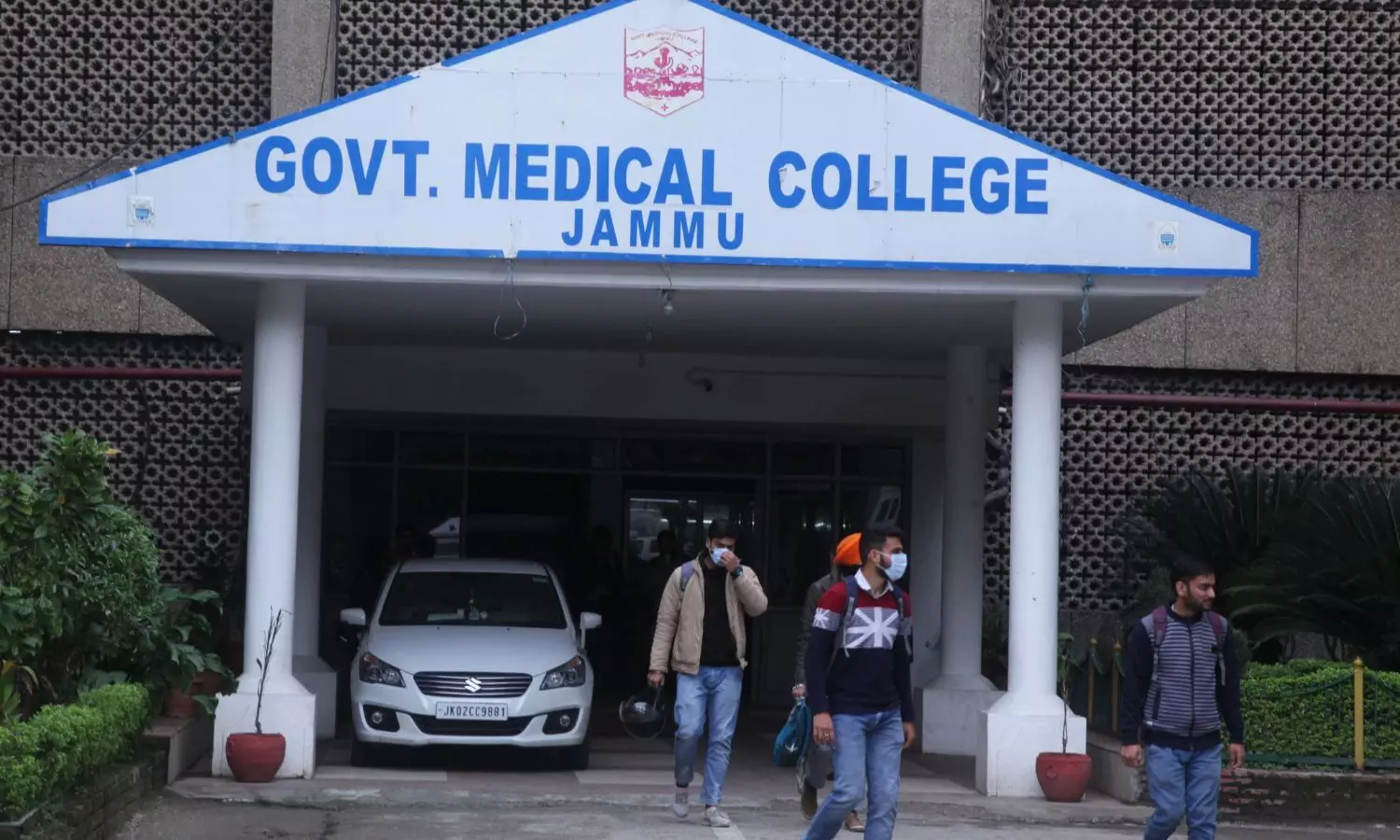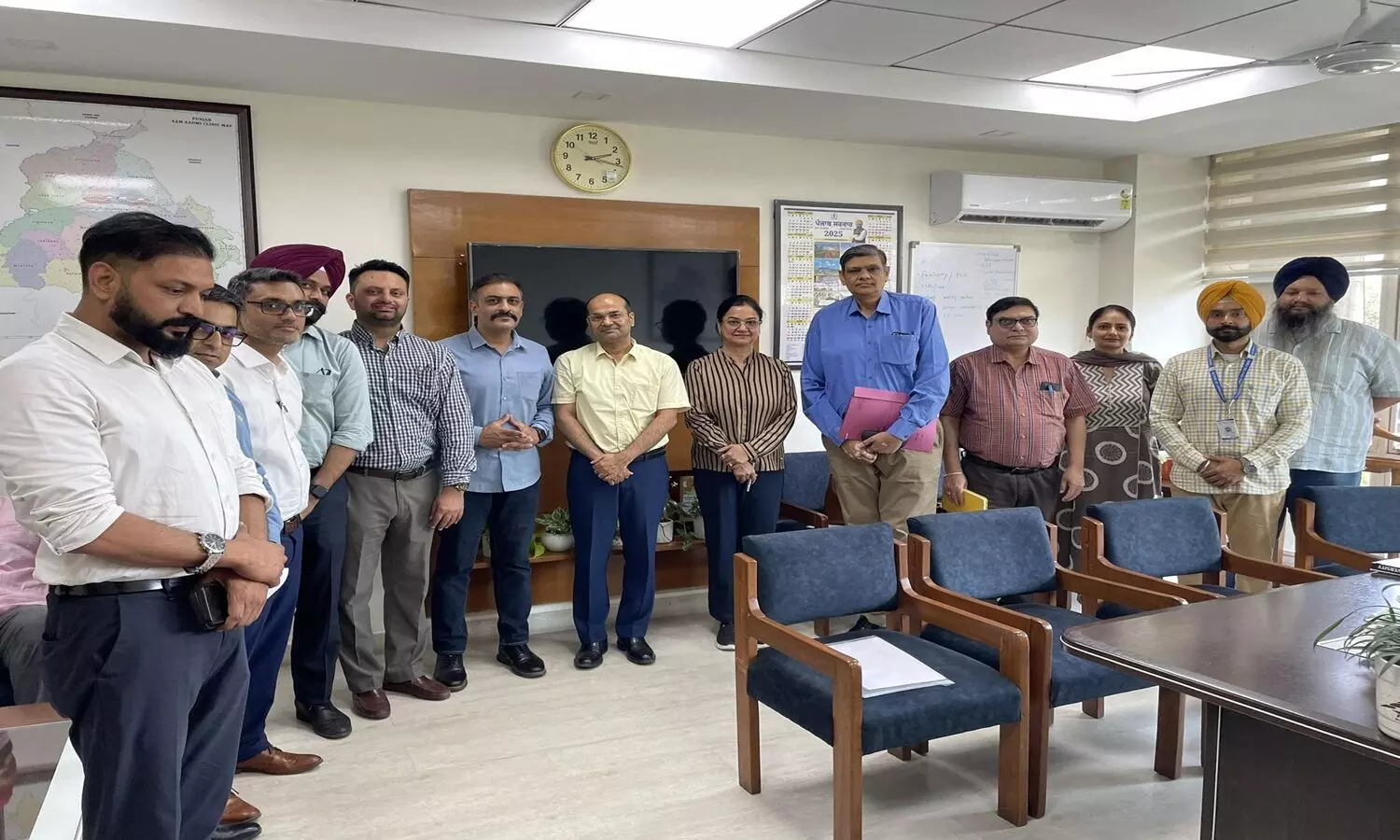Medical Bulletin 26/ April/ 2025

Here are the top medical news for the day:
Powered by WPeMatico

Here are the top medical news for the day:
Powered by WPeMatico

Mumbai: Suven Pharmaceuticals Limited, a contract development and manufacturing organization (CDMO), has announced that
it has received final approval from the Department of Pharmaceuticals (DoP),
Ministry of Chemicals and Fertilizers, Government of India, for foreign investment
under applicable regulations.
This marks the final regulatory clearance required to
implement the Scheme of Amalgamation between Cohance Lifesciences Limited
and Suven Pharmaceuticals Limited, a transaction previously approved by
shareholders and sanctioned by the Hon’ble NCLT, Mumbai Bench.
In line with the terms of the approved Scheme of Amalgamation, the merger will
take effect from the business opening hours of 1st May 2025, following the
satisfaction of all prescribed conditions.
The merged company will operate under the name Cohance Lifesciences Limited,
subject to applicable regulatory approvals, reflecting a unified platform with
expanded CDMO capabilities.
“This approval is a significant milestone and reinforces the strategic vision behind
the merger,” said Vivek Sharma, Executive Chairman, Suven Pharmaceuticals. “We
are combining niche, technology-led capabilities to create a differentiated,
innovation-driven global CDMO. This integration positions us to scale complex
modalities such as ADCs and Oligonucleotides, deepen customer partnerships,
and enhance execution across the value chain—enabling us to deliver on our US$1
billion(INR85bn) revenue ambition through a mix of organic growth and strategic
acquisitions.”
“The merged entity will operate with an expanded scope of capabilities across the
pharmaceutical value chain, combining Suven’s scale and commercial execution
strengths with Cohance’s domain expertise in Antibody-Drug Conjugates (ADCs)
and complex chemistry platforms. This integration strengthens our positioning as an innovation driven integrated CDMO partner to global innovators, with a focus on
scaling high-growth modalities such as ADCs and oligonucleotides,” Suven Pharma stated.
The Board has also approved Thursday, May 8, 2025, as the Record Date for
determining the eligible shareholders of Cohance Lifesciences Limited who shall
receive equity shares of Suven Pharmaceuticals as per the approved share
exchange ratio under the Scheme of Amalgamation.
With the merger becoming effective, the Company has initiated the operational
and organizational integration, aligning systems, capabilities, and teams.
Powered by WPeMatico

Srinagar: The Government Medical College Hospital (GMCH) Jammu has officially withdrawn a circular it issued on April 25, 2025, which had instructed hospital staff to remain on high alert due to reported cross-border tensions in the Union Territory of Jammu & Kashmir.
The earlier circular, issued by the Medical Superintendent of GMCH Jammu, had directed all staff to remain on high alert and ensure complete preparedness to meet any exigencies that may arise at any time. These measures included keeping essential medicines and critical equipment ready, limiting unnecessary leave, and ensuring uninterrupted patient care.
Also read- Unauthorised Extensions: JnK Govt orders Repatriation of Overstaying Doctors
The circular issued by the medical superintendent of GMCH Jammu on April 25 mentioned, “The Store Officer and Store Keepers, GMCH are requested to keep all essential supplies, emergency medicines, and critical equipment in a state of readiness for immediate use to meet any exigency. All hospital staff are advised to restrict unnecessary holidays and are directed to ensure their presence within the hospital premises during duty hours to maintain uninterrupted and effective patient care. A 24×7 Control Room has been established to coordinate all emergency responses. The control room will function round the clock and may be contacted for any urgent requirement/issues.”
However, yesterday, the Principal and Dean of GMC Jammu, Dr. Ashutosh Gupta, issued another directive formally withdrawing the April 25 circular without explaining the decision.
“The circular issued by Medical Superintendent GMCH Jammu vide endorsement number GMCH/2025/812 dated 25.4.2025 is withdrawn ab-initio with immediate effect,” reads the latest circular.
Medical Dialogues had recently reported that a brutal act of terrorism in Pahalgam, which left the nation in mourning and rage, tore a family’s world apart. A Bengaluru-based paediatrician’s husband, a father, a simple man on a family vacation, was mercilessly shot even after he begged for his life. Not for himself, but for his three-year-old son.
But his cries were unheard, and he was lying on the ground, bleeding with bullet holes in his head and body after being shot for three minutes non-stop. In an instant, a child was orphaned, a wife was shattered, and a peaceful holiday turned into a lifelong nightmare.
The deceased man was Bharath Bhushan, a 41-year-old former software professional from Bengaluru, who was mercilessly shot dead by terrorists in Pahalgam, Jammu & Kashmir, on Tuesday in front of his wife, Dr Sujatha, a paediatrician at M.S. Ramaiah Medical College and Hospital and their three-year-old son.
Also read- Pahalgam Terror Attack: Paediatrician’s husband shot dead after revealing Name, Religion
Powered by WPeMatico
Powered by WPeMatico
Powered by WPeMatico
Powered by WPeMatico
Powered by WPeMatico
Powered by WPeMatico

Chandigarh: In a major boost to the state’s healthcare infrastructure, the Punjab Government has decided to recruit 1,000 Medical Officers (MBBS). The decision was revealed during a meeting held between Principal Secretary Health and Family Welfare Kumar Rahul, Director Health Services Dr. Hitinder Kaur, Director PHSC Dr. Anil Goyal, and representatives of the Punjab Civil Medical Services Association (PCMSA).
The association was briefed on several key developments following comprehensive discussions among Health Minister Dr. Balbir Singh, Finance Minister Harpal Cheema, and Kumar Rahul. As part of efforts to strengthen security at health institutions, the Finance Department has approved the hiring of security guards through PESCO, an ex-servicemen organisation. Security personnel will be deployed round the clock at all District Hospitals, Sub-Divisional Hospitals, and Community Health Centres offering 24×7 medicolegal services. Morning-hour security coverage will be ensured at the remaining CHCs and Employees’ State Insurance hospitals. The proposal is expected to be formally sent to the Finance Department within the next few days, with approval likely in the next two to three weeks.
PCMSA has praised the government’s proactive response to the long-pending security concerns and expressed hope that adequate arrangements will be in place within a few weeks. In addition to recruitment and security measures, several administrative reforms were discussed. These include a speaking order on the rationalisation of postgraduate allowance for pre-2016 batches, early clearance of pending Modified Assured Career Progressions (MACPs), issuance of MACP letters for batches from 2020–21 onwards, and finalisation of the postgraduate policy by the end of the month. The letter regarding leave rules for Senior Medical Officers and above ranks has also been reverted, offering further relief to senior personnel.
Medical Dialogues had earlier reported that 2,500 doctors in the state started their agitation on January 20th, urging the government to fulfill its time-bound commitments. This came after talks between the finance department and the PCMSA, but no significant outcomes were achieved. Finally, with the new recruitment, PCMSA acknowledged these initiatives as crucial steps toward strengthening the healthcare delivery system.
Powered by WPeMatico

Hyderabad: CuraTeQ Biologics s.r.o., a wholly owned step-down subsidiary of Aurobindo Pharma Limited, has announced that the Committee for Medicinal Products for Human Use (CHMP) of the European Medicines Agency (EMA) has adopted a positive opinion recommending marketing authorisation of Dazublys (150
mg powder for concentrate for solution for infusion), its trastuzumab biosimilar, for the treatment of
HER2-positive metastatic and early breast cancers.
Trastuzumab specifically binds and inhibits the human epidermal growth factor receptor 2 (HER2)
protein, which is over-expressed on certain types of solid cancers such as breast and gastric
cancer. By binding to the extracellular domain of HER2, trastuzumab disrupts its ability to signal,
leading to cell cycle arrest, reduced tumor growth, and potentially immune system activation to
destroy cancer cells.
Commenting on the update, Dr. Satakarni Makkapati, Director of Aurobindo Pharma and CEO Biologics,
Vaccines and Peptides stated, “The CHMP’s positive opinion is based on demonstrating comprehensive
analytical similarity and clinically no meaningful differences between Dazublys and the reference biologic
product Herceptin in terms of pharmacokinetics (PK), pharmacodynamics (PD), efficacy, safety, and
immunogenicity. Upon European Commission approval that is expected in July, Dazublys will be available
for use across EU member states. This marks our third biosimilar to receive CHMP’s endorsement and the
fourth overall in the EU, alongside the approval of Bevqolva (a bevacizumab biosimilar) by the MHRA in
November 2024. Biosimilars are playing an important role in improving cancer care, and we remain
committed to expanding our biosimilars portfolio to address the unmet needs of patients.”
Aurobindo Pharma’s Vice Chairman and Managing Director Mr. Nithyananda Reddy said, “The CHMP’s
positive opinion of a third biosimilar from our portfolio in a five-month time period underscores our
extensive efforts in building biosimilars as one of the core businesses at Aurobindo. By 2030, we are
committed to launching at least 10 biosimilars across oncology and immunology therapy segments,
furthering our mission to serve patients with high-quality, cost-effective therapies.”
Powered by WPeMatico
